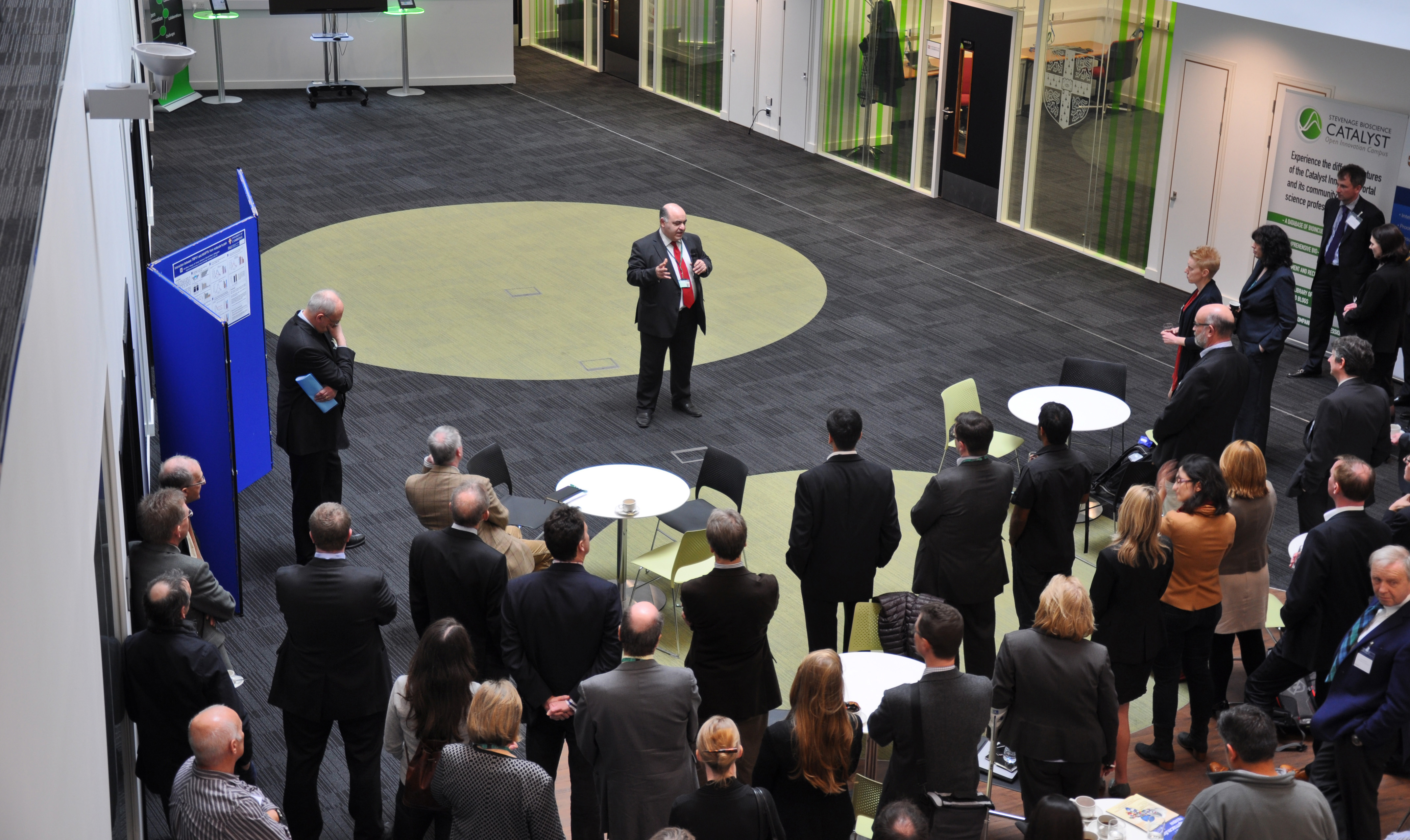The University laboratories at the Stevenage Bioscience Catalyst, where Cambridge researchers are developing potential new treatments for MS, animal allergies and hypersensitivity to heat in collaboration with industry, are now officially open.
Revolutionary treatments which could alleviate pain in people with hypersensitivity to heat, provide a new regenerative therapy for multiple sclerosis (MS) sufferers, and relieve symptoms in those with cat and dog allergies, are being developed by University of Cambridge researchers at Stevenage Bioscience Catalyst (SBC), the UK’s first open innovation bioscience campus.
The laboratories were officially opened by the University’s Vice-Chancellor, Professor Sir Leszek Borysiewicz, in an event held last week in Stevenage.
This programme at the SBC represents a firm commitment by the University to work with our partners in industry in order to develop new treatments for a range of conditions.
Professor Sir Leszek Borysiewicz
Cambridge is the first university to establish a programme of scientific open innovation collaboration with GlaxoSmithKline and other partner organisations, in order to advance drug discovery and the development of new medicines.
“This programme at the SBC represents a firm commitment by the University to work with our partners in industry in order to develop new treatments for a range of conditions,” said Professor Borysiewicz. “Drug discovery is a very difficult, time-consuming and expensive task, and it is critical for us – the University and industry – to work together.”
First announced in 2012, the programme gives University researchers access to the drug development expertise of GSK, Johnson & Johnson, and other pharmaceutical companies, while giving industry access to Cambridge research and know-how, in order to accelerate the development of new medicines.
SBC brings together academia and industry with the goal of developing new innovations in the life sciences through collaboration. A key element of the open innovation environment fostered through SBC is enabling scientific exchange to flourish without the need for exclusive research collaboration agreements between partners. The open innovation model allows Cambridge scientists to freely interact with other pharmaceutical, biotech and contract research organisations, SBC tenants and academic institutions.
There are now three University research projects in place at SBC. Professor Robin Franklin of the Wellcome Trust-Medical Research Council Cambridge Stem Cell Institute is developing a new regenerative therapy for MS, which affects almost 100,000 people in the UK, 400,000 in the US, and several million worldwide.
Professor Peter McNaughton is working on a novel approach to alleviating the pain associated with heat. Billions of dollars are spent each year on the treatment of pain, but there is currently no effective treatment for the extreme pain associated with hypersensitivity to heat.
The research of Professor Clare Bryant of the University’s Department of Veterinary Medicine has identified how the most common cause of severe allergic reactions to cats, the Fel d 1 protein, triggers an allergic response. At SBC, Dr Bryant and her team will build on this research to develop new therapies for allergic asthma.
“This is a ground-breaking approach to early stage drug discovery, which is typically enormously time-consuming and expensive,” said Professor Franklin. “The exchange of scientific ideas and overall atmosphere of collaboration at SBC can help us as researchers, as well as our industrial colleagues, become more efficient in developing new ideas which will lead to better drugs and improved clinical treatments.”
Cambridge is the first university to establish this type of arrangement and has committed significant Higher Education Innovation Fund (HEIF) resources. Recently, the University, in a bid led by University College London, was awarded close to £3 million in funding from the Higher Education Funding Council for England (HEFCE) to enable the two universities to work together at SBC, in part to establish a range of collaborative training programmes to develop the next generation of entrepreneurial researchers, particularly in drug discovery. The collaboration is directly supported by the National Institute for Health Research University College London Hospitals’ Biomedical Research Centre, and will be further expanded through UCL Partners.
Cambridge Enterprise is managing the University’s relationship with SBC. It is anticipated that between three and five University research projects will be located at SBC at any one time.











